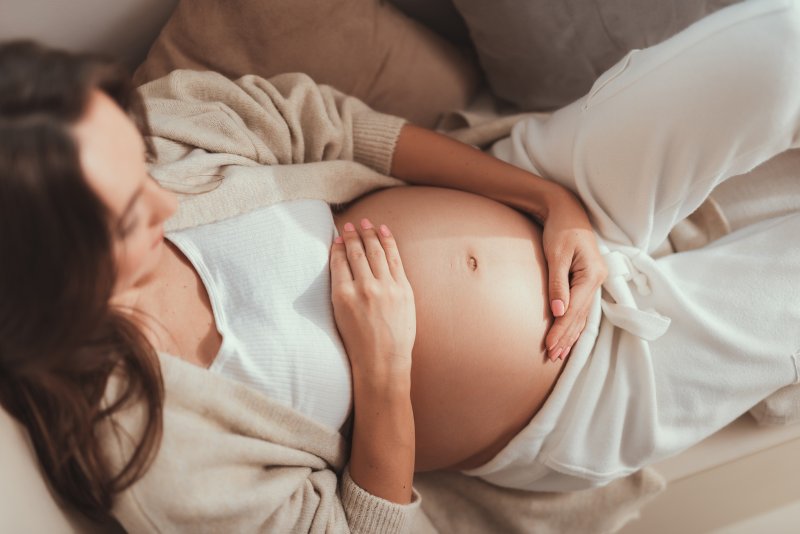
If you haven’t been sleeping well since becoming pregnant, that’s nothing unusual. More than 75% of pregnant women say they experience sleep disturbance. But if said disturbances are being caused by an interruption of airflow, then that’s a much more serious problem – one that could have grave consequences for you and your yet-to-be-born child. Every mom-to-be needs to be aware of the risks of sleep apnea during pregnancy so that they can act quickly to protect themselves and ensure that the birth is successful.
Why are Pregnant Women at Risk for Sleep Apnea?
During pregnancy, the heightened levels of estrogen can lead to swollen mucus membranes in the nose. Congestion is the natural result of such swelling, making it much harder to breathe in general. The harder you work to breathe, the more the airway itself also becomes swollen, constricting airflow even further. The end result is that you may find your breathing being interrupted frequently whenever you sleep. Women who were already obese or gained too much weight during pregnancy have a particularly high risk for obstructive sleep apnea, since extra tissue around the neck can easily lead to a blocked airway.
What are the Risks of Sleep Apnea?
The effects of sleep apnea on the body alone can be frightening. The disorder causes your body to get less oxygen overall, leading to fatigue and increasing the risk of high blood pressure. You’ll be more likely to experience a heart attack and other potentially deadly health conditions. But it’s not just your own body that is at risk; your baby’s health could be affected as well. Sleep apnea makes it more likely that you’ll experience preeclampsia and gestational diabetes – two conditions that can lead to early birth. In the worst case scenario, they could even result in a stillbirth or a life-threatening placental abruption.
What Can You Do About Sleep Apnea During Pregnancy?
For one thing, you can get better at recognizing it. Ask your partner if they’ve noticed you snoring loudly or gasping for air at night; these symptoms might point towards sleep apnea. You should also be aware of other possible warning signs such as being exhausted during the day or waking up with a sore throat. Once you’ve been tested for sleep apnea, you can start looking into potential solutions, such as an oral appliance or a change in sleeping position. (Sleeping on your side can reduce sleep apnea symptoms as opposed to sleeping on your back.
Sleep apnea can be successfully treated, but it’s a condition that you can’t afford to ignore for too long. Call your doctor right away if you notice potential sleep apnea symptoms so that you and your baby-to-be can enjoy the benefits of a good night’s sleep all throughout your pregnancy.
About the Author
Dr. Pamela West has spent over 20 wonderful years helping Las Vegas families overcome sleep apnea to enjoy quieter, more restful nights. Her practice, iSleep Solutions, offers oral appliances and combined therapy that can help keep the airways open at night. If you’re worried about sleep apnea disrupting your pregnancy, schedule a consultation by visiting her website or calling (702) 844-6226.
